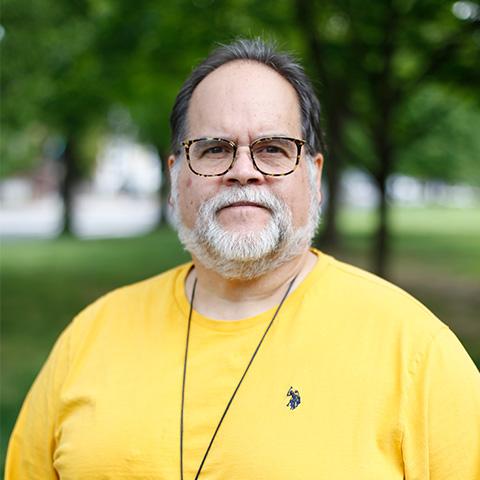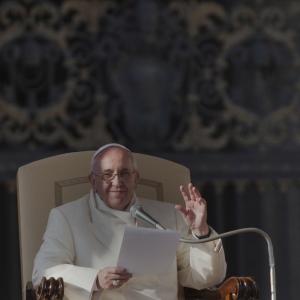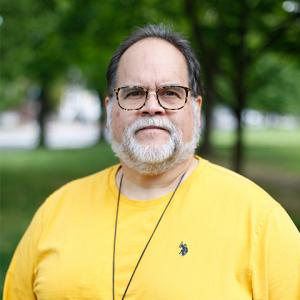
Rev. Carlos Malavé is the founder and president of the Latino Christian National Network, an organization that aims to provide a space for respectful dialogue among Latino Christian leaders of different traditions and theological perspectives. Previously, Malavé served as the executive director of Christian Churches Together in the USA (CCT) for 11 years. CCT is the broadest organization working for the unity of the church in the U.S.
Malavé is a member of the steering committee of the Circle of Protection, a coalition of church bodies and related ministries representing the diversity of Christianity in this country. Malavé previously served as assistant stated clerk at the Office of the General Assembly of the Presbyterian Church (USA) and as pastor in Puerto Rico and Southern California. He holds a M.A. in family life education from Loma Linda University and an M.Div. from Fuller Theological Seminary. He is married to Aixa Malavé and has three children.
Posts By This Author
Can the Church Prove the Naysayers Wrong?
Last week’s event in Charlottesville that resulted in the death of Heather Heyer is a clear reminder of the unresolved and persistent struggle of our nation with the sin of racism. For more than five years (not referring to the historical struggles) the African-American community has been raising its collective voice, calling out our nation to the pervasive, often deadly, effects of racism. These “deadly effects” are experienced not only in the actual killing of African Americans in the streets of our cities, but also in the denial of full access to the benefits and privileges of our socio-economic systems.
American Individualism Is Destroying the Soul
Coming together from all streams of American Christianity to speak in opposition to cuts on the safety-net programs is no minor achievement. We have a widespread consensus on the priority of providing essential life saving support to poor people in our country. We also agree in that the ultimate goal is to create a just society in which everyone live an abundant life that includes meaningful work with fair salaries, affordable health care and education, and time for leisure and recreation.
The Man or the Message?

Image via giulio napolitano / Shutterstock
The American media, Christians of all colors and stripes, and the general public have been swept up by the frenzy of Pope Francis' visit to the U.S. While attending the prayer service at the 9/11 Memorial Museum, I couldn't help but notice the excitement of even some who have substantial theological disagreements with the pope.
The reactions of two people close to me are very revealing. A Catholic relative commented that he is "our pope," as if to say that Protestants have no right to claim his success and fame.
On the other hand, a good friend and colleague in ministry, who happens to be Pentecostal, raised the issue of the fine line between admiring a person and adoring (as if worshiping) that person.
Is all this frenzy about the man — Pope Francis?
Choosing Courage: An Appeal to Christian Leaders
In the last several days, our country has witnessed and experienced, yet again, the effects of the unresolved issues of racism. We cannot rest complacent, convincing ourselves that everything is and will be all right on its own. That is a lie. The racial divide in the United States is boiling — we see the big cloud that rises over the roaring mountain. If we don’t act, the volcano will eventually explode. Our all-gracious God is calling us to turn from our wrong path.
Above other civic institutions, the church is responsible to do the work of healing. Our nation is desperately in need of healing. The sins of racism, classism, violence, and ideological intransigency are violently shaking and destroying the soul of our nation.
Where are the godly leaders in our country who are ready and willing to strip their souls of religious and ideological allegiances and surrender without fear, to seek the path that the Holy Spirit is eager to show us?
There is a way forward. We know that Jesus the Christ came to show us that way. We need to quit insisting that the way forward is my way. It is not my way — it is Christ’s way. No one Christian leader can claim to speak for God. Neither does God need any one of us to make the way clear — God can speak for God’s self.
There is one condition necessary for us to hear God’s voice: “If my people who are called by my name humble themselves, and pray and seek my face and turn from their wicked ways, then I will hear from heaven and will forgive their sin and heal their land.” (2 Chronicles 7:14.)
Someone once said that change happens by listening and then starting a dialogue with the people who are doing something you don't believe is right. There is no virtue in sticking to our allegiances. Our allegiances should not be to the right or the left or even the center. If we follow Jesus, our allegiances are to repentance, forgiveness, and reconciliation. Our life and our only hope are found in the Gospel of Jesus Christ.
Thomas Merton wrote, “You do not need to know precisely what is happening, or exactly where it is all going. What you need is to recognize the possibilities and challenges offered by the present moment, and to embrace them with courage, faith, and hope.”
The truth is that we do know what is happening, and we know what is going on. Our individual and collective sins are robbing us of our dignity. We, the Christian leaders of this country, can choose to wage war with the weapons of our ideological, denominational, and theological perspectives and convictions. Or we can choose to “recognize the possibilities and challenges offered by the present moment, and to embrace them with courage, faith, and hope.”
My Sin, Your Sin: The Way to Freedom
After your recent relocation to a new city, you are invited to a local congregation by one of its members. After that first visit, you don’t find anything compelling you to come back to worship the following Sunday.
Now fast forward five years. For some unknown reason, you find yourself visiting that same congregation. But this time, it is obvious that something dramatic has happened; a new senior pastor has been called, and, in less than a year, the transformation of the church has been dramatic. The trend of slowly losing members has now stopped. To the delight of longtime members, almost every Sunday new people are accepting Christ or renewing their commitment to Christ. Vibrant children, youth, and family ministries are now in place. Ten percent of the budget is dedicated to local and global mission. People are growing deeper in their faith. The congregation of a little less than 400 begins to grow in such a way that during the following five years it reaches 1,600 members. This time around, you and your family decide to join this congregation. Your faith is reenergized and you feel like you are finally in the right place.
The story could end here and we could say, “This family happily and faithfully journeyed with this congregation for many years.”
There was only one problem in this successful congregation.
Let Us Demonstrate to the World How Repentance Works
“If my people, which are called by my name, shall humble themselves, and pray, and seek my face, and turn from their wicked ways; then will I hear from heaven, and will forgive their sin, and will heal their land.” —2 Chronicles 7:14
Confession and repentance are messy and painful, and they don’t come natural to us. Our human heart is in a natural state of denial. Without an external agent, God, we are unable to recognize our prejudices, offenses, and sins.
In the previous text God speaks to God’s people, those whom God claims as God’s own. We belong to the Creator and to each other. That means that regardless of how we perceive others, and regardless of how others perceive us, bonds that can’t be broken tied us up. The relationship we share is held together by the very identity of God. Mother Teresa reminded us “we have forgotten that we belong to each other — that man, that woman, that child is my brother or my sister.”
It is necessary that we understand that this belonging is mutual. I belong to you and you belong to me. There is no escape; we can’t change this relationship. It is only when I recognize others and welcome them into my life that the fullness of God’s identity in me is revealed. No one is an outsider. No one should be left out at the door of my heart; to do so is to deny my God-given identity.
Waiting for Another MLK
Are we waiting for another Dr. King? As I collect my thoughts to write these words, I’m mindful that I don’t honestly know what discrimination is. I have never (consciously) experienced discrimination because of my race, the color of my skin, or where I come from. I have never had to say, like Solomon Northup, “I don’t want to hear any more noise.” In the film, 12 Years a Slave, Solomon refers to the cry of those being beaten and separated from their children. I speak here with a profound sense of respect and fear. Who am I, or maybe even you who read, to speak about a tragedy and a pain that we have never experienced? I only speak out of a sense of duty and a calling from God.
Dr. King wrote, “So many of our forebears used to sing about freedom. And they dreamed of the day that they would be able to get out of the bosom of slavery, the long night of injustice … but so many died without having the dream fulfilled.” (A Knock at Midnight, p.194)
To this day, millions of African Americans in our country still dream about getting out of the bosom of slavery. Slavery today is masked behind the social, financial, political, and even religious systems that deny the dignity and full integration into these systems to people of color. Solomon Northup cries out in the film saying, “I don’t want to survive, I want to live.” The struggle of African Americans is a struggle to live. So far, they have only survived.





